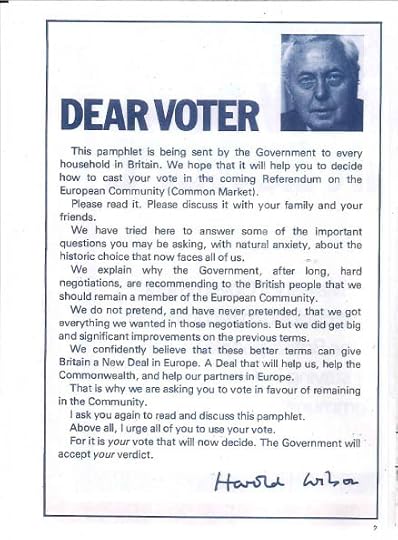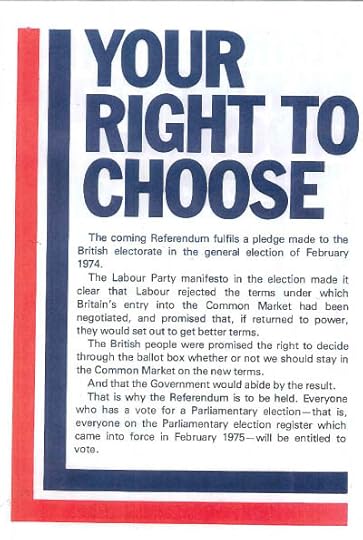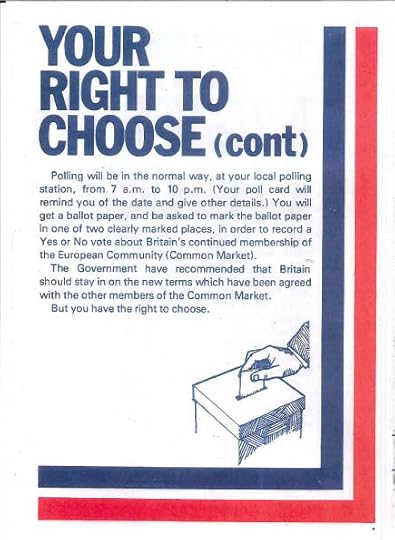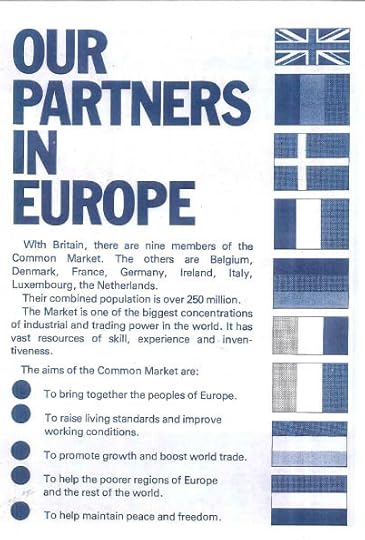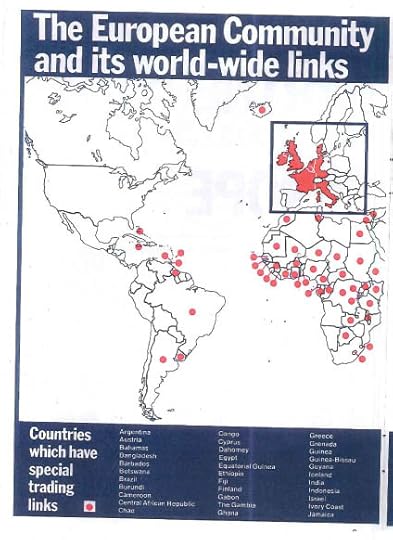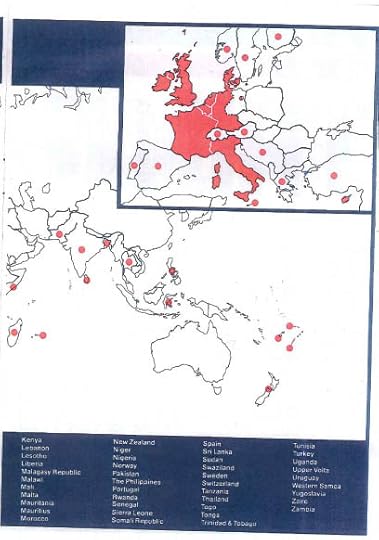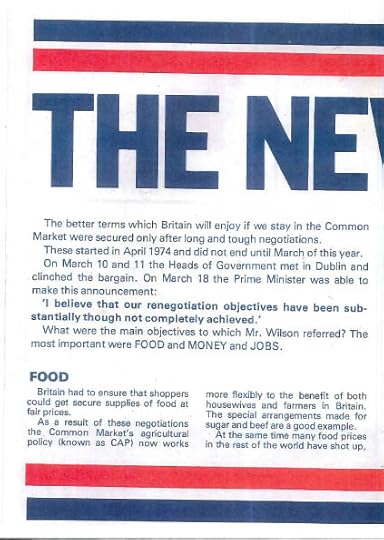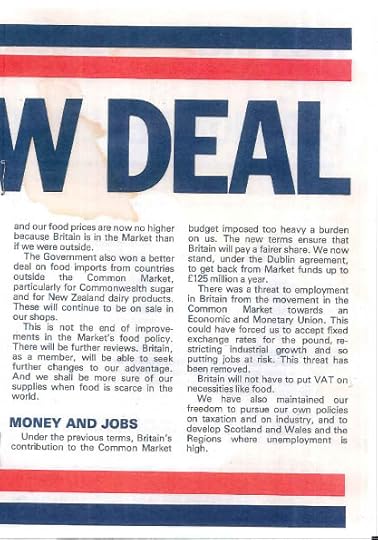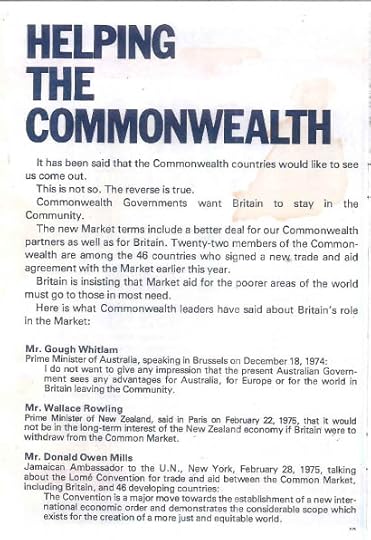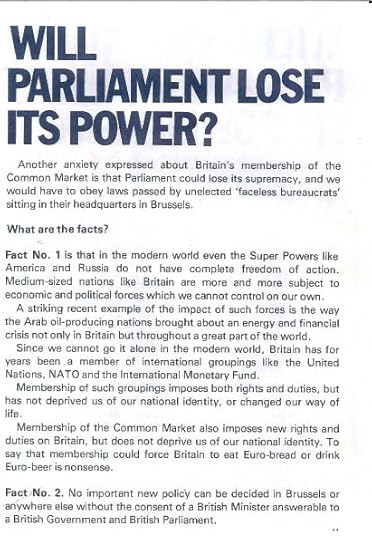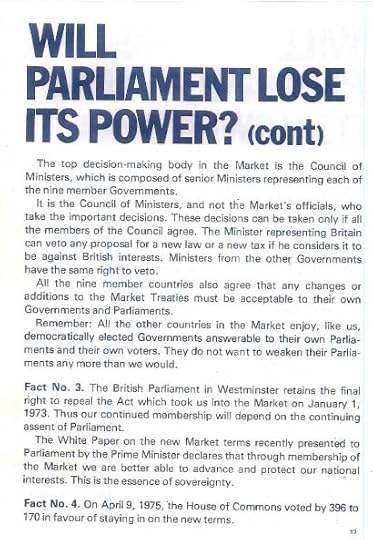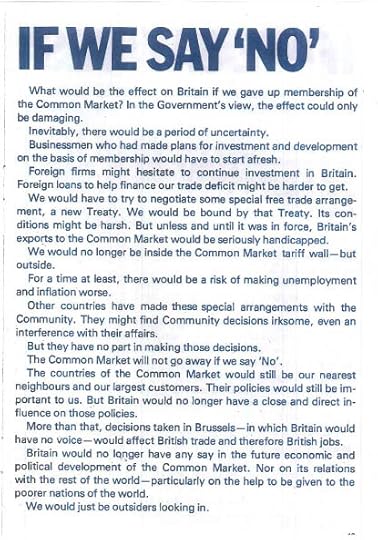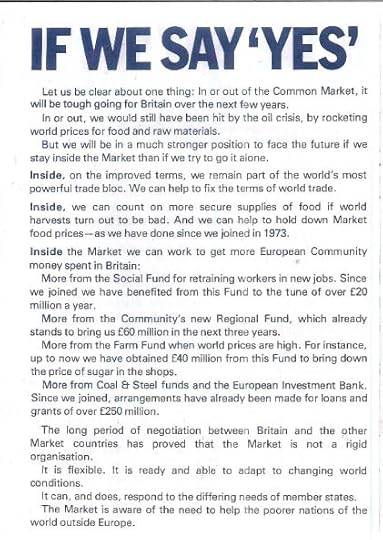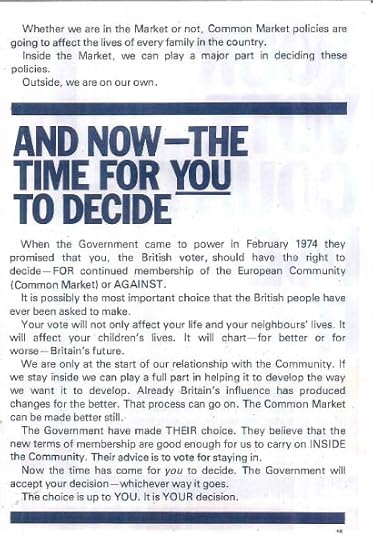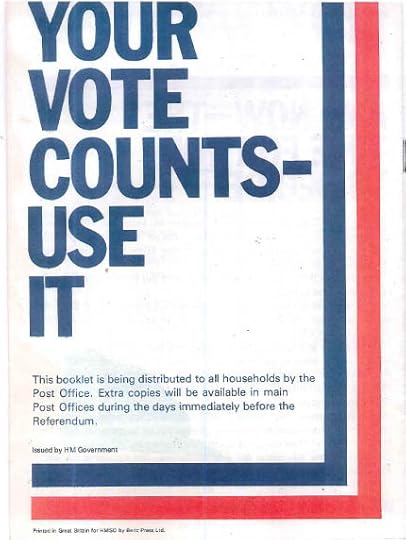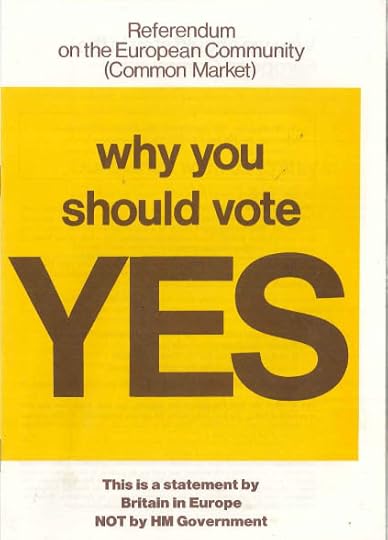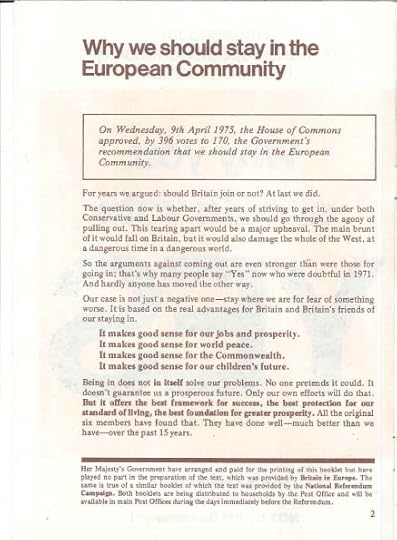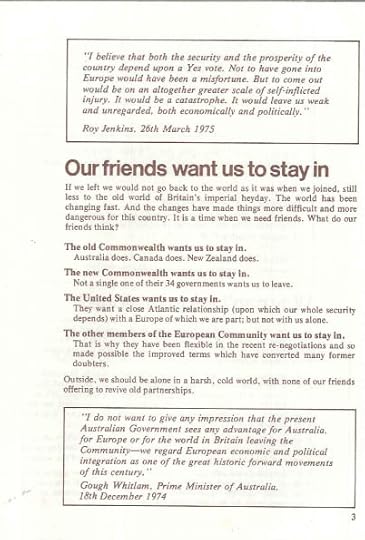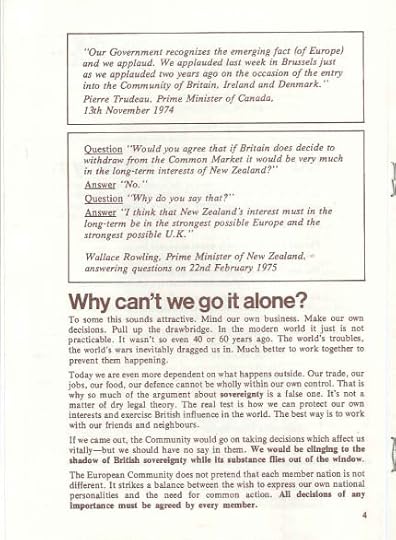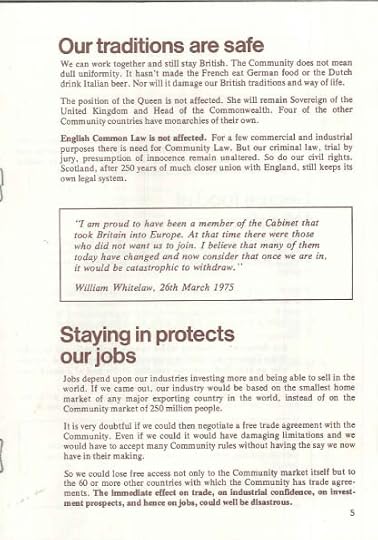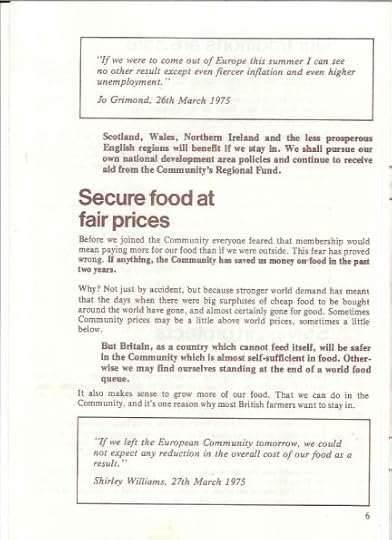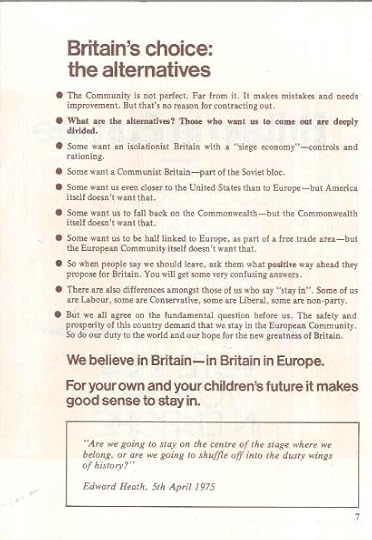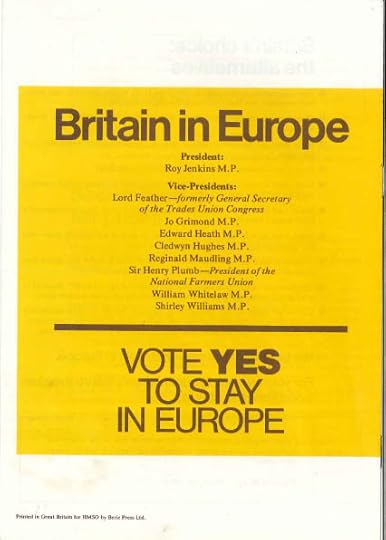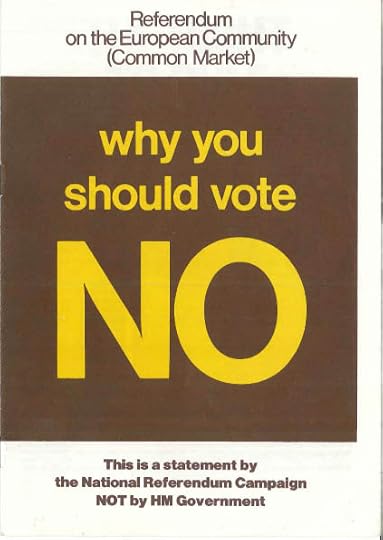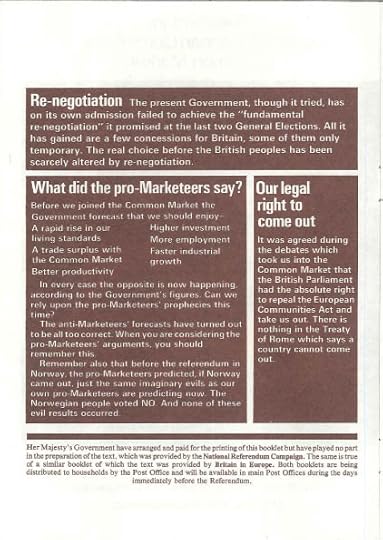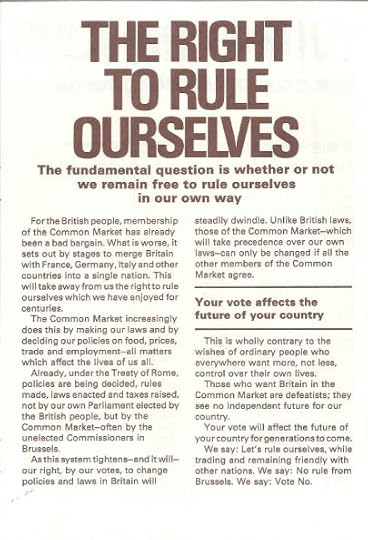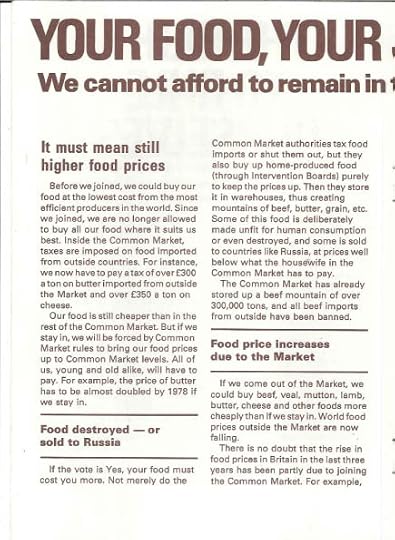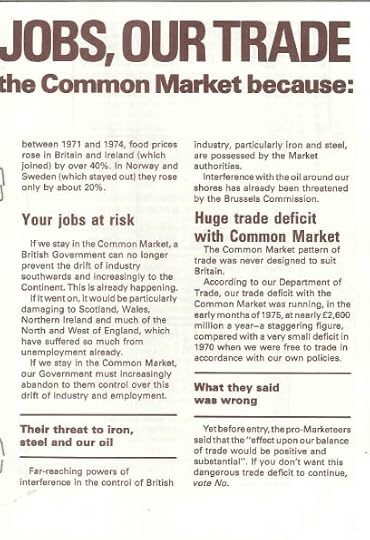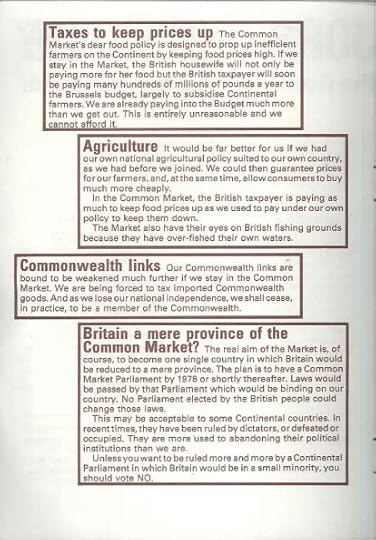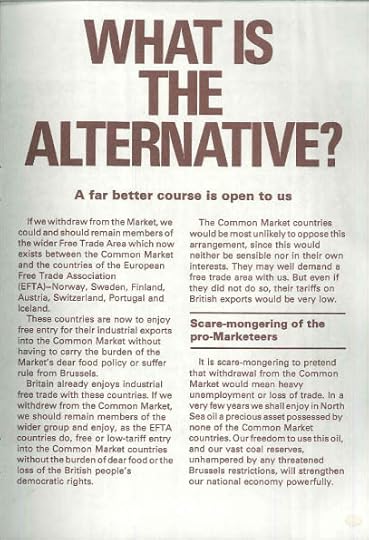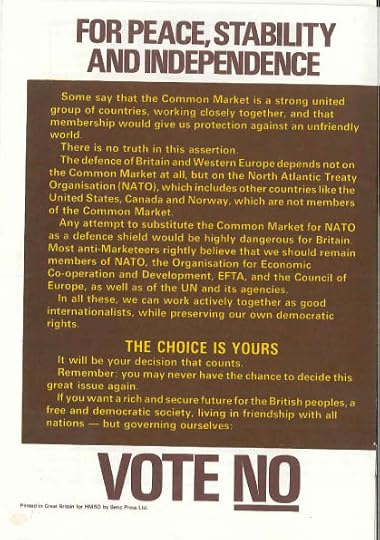Peter Hitchens's Blog, page 188
September 2, 2015
New Violence in Kiev - But Nobody Seems to Care Much
Forgive me for mentioning it, but serious violence has returned to Kiev, scene (in February 2014) of the lawless overthrow of the legitimate President of Ukraine. Viktor Yanukovych, by a violent, armed mob. For a list of the 18 police officers incontestably killed in the 2014 events, whose deaths are proof that this was not a wholly one-sided clash between ruthless state and peaceful, unarmed people, see here https://en.wikipedia.org/wiki/List_of_people_killed_during_Euromaidan#cite_note-MSV-03.02.14-1
This supposedly spontaneous events of 2014 (in my experience as a revolutionary, spontaneity takes a lot of organising) , in which serving foreign politicians and diplomats openly showed their partiality towards the demonstrators, and the legitimate President was unconstitutionally removed from office, has now passed into myth as a laudable exercise in idealistic and disinterested people power, supposedly aimed at ending the corruption and general squalor of Ukraine���s oligarch-dominated state.
To which one can only respond with helpless if bitter laughter, as the resulting government is actually headed by an oligarch and entirely dominated by them, and if Ukraine has since ceased in any important way to be Olympically corrupt, then I have to say I have seen no reports of this.
Now, I have from time to time, in many debate s on this subject, pointed out that grave danger in which the Kiev government finds itself. Having come to power through mob violence, it has no real moral protection from falling in the same way.
And the forces which carried it to power still exist, though slightly altered. Their hard core were then concentrated round the ultra-nationalist Svoboda Party . This has since been displaced by Oleh Lyashko���s Radical Party, which mopped up Svoboda���s vote in 2014 and now holds 22 parliamentary seats and 7.5% of the vote, a fact Kiev apologists will hope you don���t know when they point out (accurately) Svoboda���s failure to do well at the October elections. They also relied heavily on the hard men of the ���Right Sector���, many of whom are presumed to have ended up in semi-autonomous units in Ukraine���s otherwise shambolic Army, where they have been prominent in the fight against Russian-speaking separatists, backed by Moscow, in the eastern part of Ukraine. This has now settled into a sort of Maginot war around the port of Mariupol, which has sprouted huge concrete defences and is ringed with howitzers, liek something out a history book.
These ultra-nationalist forces are showing signs of strong discontent with the Poroshenko government, not least because of its recent realistic and non-Utopian attempts to reach a compromise with Russia over the embattled east.
So on Tuesday, the (London) Daily Telegraph reported as follows:
���TWO national guardsmen yesterday died of the wounds they sustained in a grenade attack outside Ukraine's parliament, as tensions flared over how to end the war against pro-Russian separatists in the east.
The clashes in Kiev erupted on Monday after Ukrainian MPs voted in favour of legislation that would devolve power as part of a peace agreement reached in February. Critics have denounced the move as tantamount to surrender. Yesterday the Radical party, which has been accused of involvement in the violence, announced it would quit the governing coalition.
Meanwhile, a new ceasefire appeared to hold in the east, on the first day of the new school year. "As of 12pm there were no reports of violations by the illegal armed groups. Now the situation is calm," said Oleksander Motuzyanyk, a government spokesman.
Some 144 people were injured on Monday when a crowd including supporters of the nationalist Svoboda party used batons, smoke bombs and other street weapons to try to storm parliament.
One national guard officer died on Monday and a second died early yesterday as a result of injuries caused by a hand grenade, said Arsen Avakov, the interior minister.
The national guard reported another death yesterday afternoon, saying that the 20-year-old guardsman had died from shrapnel wounds to the brain.
Petro Poroshenko, the president, condemned the violence as a "stab in the back". A suspect arrested at the scene was identified as a Svoboda party member who fought with a volunteer militia in the east.���
There was also this report in Metro, the free daily newspaper
���A NATIONAL guard officer was killed yesterday when a grenade exploded outside Ukraine���s parliament amid violent clashes between protesters and riot police.
Another 100 officers were injured ��� ten seriously ��� as petrol bombs were hurled by nationalists opposing a vote to give greater powers to separatist regions in the east.
Kiev mayor Vitali Klitschko called the demonstrations ���a bloody provocation��� and said about 30 people had been detained, including the person who threw the grenade. Many protesters were masked and carrying sticks and truncheons.
Interior minister Arsen Avakov blamed the trouble on ultra-nationalist party Svoboda.
���No political differences can justify what you did today,��� he told its leaders.Devolution of power was a condition aimed at ending the fighting between Ukraine and Russia-backed separatists that has killed 6,800.���
And this from the ���Indepndent���:
As MPs voted on a contentious bill to try to bring peace to the country and grant concessions to territories still held by Russian-backed rebels, protests turned deadly on the steps of parliament. OLIVER CARROLL reports from Kiev. Premier accuses protesters of being worse than the separatists
By: OLIVER CARROLL
The all-too-familiar sight of masked men, Molotov cocktails, wooden sticks and explosives returned to the streets of Kiev yesterday, as violence between police and the mostly nationalist protesters broke out after a contentious vote in the Ukrainian national parliament. More than 100 people were injured, and one national guardsman died as a result of a grenade thrown during the clashes.
The violence was the worst in Kiev since the current government took power in February 2014, and dramatically highlights the vulnerability of the Western-brokered peace deal agreed in Minsk in February this year.
Key to that was the introduction of yesterday's decentralisation bill, devolving more autonomy to the regions, including those currently under separatist control, which was insisted upon in order to help secure the agreement of the rebels and win the backing of Russia's President, Vladimir Putin.
The planned new law has proven extremely controversial, with opponents suggesting constitutional changes are being pushed through undemocratically at Western insistence, and that they effectively freeze the conflict in eastern Ukraine, implicitly ceding control to the pro-Russian rebels who control large parts of the Luhansk and Donetsk regions.
On the eve of voting, however, explicit mention of the special status of the eastern regions was removed from the bill, as government officials were said to be involved in intensive last-minute haranguing and wooing of wavering MPs.
Nonetheless, in true Ukrainian style, a tumultuous session in parliament followed. The message was clear from the first minute of the debate, when MPs from Oleh Lyashko's Radical Party stormed parliament to occupy the Speaker's podium. Once the session they attempted to drown out discussion with loudspeakers, sirens, and by chanting "shame" over the speeches. At times, it seemed that the Speaker's only way of restoring decorum was by shouting "Glory to Ukraine" - although even that soon lost its power. Several scuffles broke out around the podium.
In the end, the government was only able to muster 265 votes from the 368 lawmakers in the hall, and two of the coalition member parties voted against. While this simple majority was enough for the bill to pass its first reading, it was not the 300 "supermajority" required for a constitutional change to be fully approved. Its second reading is now likely to be delayed for some time, putting at risk the deal supposed to secure peace in the east.
In a live address on television, Ukraine's Prime Minister, Arseniy Yatsenyuk, called for life imprisonment for the person who threw the grenade - who police said they had arrested - and said the right-wing protesters were "worse" than the separatist rebels because they were destroying the country from within "under the guise of patriotism".
"The cynicism of this crime lies in the fact that while the Russian federation and its bandits are trying and failing to destroy the Ukrainian state on the eastern front, the so-called pro-Ukrainian political forces are trying to open another front in the country's midst," he said.
The Ukrainian President, Petro Poroshenko, called the bill "a difficult but a logical step toward peace", and insisted that it wouldn't give any autonomy to the rebels.
But news that the bill had passed its first reading was enough to tip the already aggressive crowd of protesters waiting outside the parliament building into violence. Several had come prepared, wearing masks and brandishing wooden sticks. At about 1pm, The Independent saw a group of men begin to assault policemen with sticks. A short while later, another small group broke through the substantial police cordon and began throwing missiles - bottles, stones, bricks - at the police.
Eventually, the missiles became Molotov cocktails and, it is believed, grenades or improvised explosive packbegan, ages of some description. There were several pools of blood around the south and west sides of the parliamentary building, but it is unclear whether these were the result of multiple incidents, or of the injured being treated elsewhere. Several of the reinforced windows had been damaged by shrapnel or some other projectile.
Anton Heraschenko, an MP and adviser at the interior ministry, suggested at one point that gunfire had also been involved, but this was not confirmed and others argued that the injuries were more consistent with shrapnel.
Judging by the banners, a large number of the violent protesters were associated with the far-right Svoboda ("Freedom") party. Bloggers later posted several pictures of leading Svoboda members on the front lines of the clashes.
After coming to prominence during the Euromaidan revolution, Svoboda has become a largely marginalised force in Ukrainian politics. In last October's parliamentary elections, it was unable to muster enough votes to break through the 5 per cent barrier, effectively shutting it out of power. It had until yesterday been relatively quiet.
Many have questioned the timing of Svoboda's intervention, noting that it plays into the hands of a Russian narrative that Ukrainian politics is excessively influenced by the far right.
Mr Yatsenyuk said the day's events signalled the opening of a "second front" against Ukraine and called upon all political parties to denounce the protests.
The officer who was killed in the clashes yesterday was a 25-year-old conscript, the Interior Minister Arsen Avakov, said. A further 122 people needed hospital treatment, most of them officers, but including some Ukrainian journalists and two French reporters, he added.
"Pro-Russian bandits try to destroy Ukraine in the east. Now pro-Ukrainian political forces try to open another front" ���
There was also a report in the London ���Times���, behind a paywall, which said that nine police officers were said to be in a critical condition , that casualties ���streamed into ��� hospitals and there was blood on the road. It pointed out (which is true) that Ukraine is under pressure from EU nations to governments to make the constitutional changes, giving more autonomy to the war-ravaged areas in the east. Ukraine being virtually bankrupt, this pressure is considerable. But the votes may not be there in the Ukraine���s chamber of deputies. And these demonstrations may provide a pretxt for wavering deputies to resist the reform.
What���s striking is that the reports of these events tend to be well inside the newspapers and well down the broadcasts, and to be pretty strictly factual, lacking the breathless emotionalism of the reports on the famous ���Maidan��� of the winter of 2013-2014.
My suspicion is that the Poroshenko state, by being both ineffectual and intransigent, has forfeited a lot of the idealistic support it had from the ���West��� when it first began, and that Russia, having stood up for itself, and made it plain it will not allow the eastern rebels to be defeated, is very slowly being welcomed back into the fold of respectability, which may leave the ���New Cold War��� enthusiasts without a cause. Though it will never be as beloved in the EU and the USA as it was under the Yeltsin kleptocracy , which happily allowed the ���West��� to walk all over Russia, and plunder it.
It will be interesting to see if and how this happens, and how the enthusiasts for the new, pure, democratic Ukraine cope with the realisation that no such thing ever was on offer, or will happen. The paradox is that Russia, by regaining Crimea (something which is now pretty much de facto recognised) now has much less influence over Ukraine as a whole than it used to.
By the way, now that we all know so much more about the ���democratic��� process by which Britain was brought into the EU, its dishonesty and general lack of real knowledge, can people please stop telling me that the countries of central Europe are willing members of the EU and NATO? Their elites are certainly willing. But I think the views of the people are a lot more ambiguous. I feel a special pang for Poland, released from Soviet captivity only to be immediately led, with chains of money, into the open prison of the EU.
I wonder if the anti-Russian frenzy of Poland���s more populist politicians can be compared to the fervent anti-Israel feelings encouraged in the police states of the Muslim world ��� a safety valve in which genuine discontent can be funnelled into phoney emotionalism against an enemy who isn���t really an enemy at all. Poland doesn't even have a border with Russia, unless you count the Kaliningrad exclave. But it is now wholly dominated by a German-led EU.
August 31, 2015
Bravo Blair!
Bravo Anthony Blair. Yes, I���ll repeat that : Bravo Blair! In all fairness, I have to give the ghastly creature the credit for trying to stop David Cameron���s overthrown of Colonel Gaddafi, which has led directly to the great migration disaster and to other horrors yet unknown. I see from ���The Times��� this morning that various blowhard Tory MPs want to condemn and investigate Mr Blair for this action. On the contrary, we should all wish that he had succeeded.
This emerges in extracts from Anthony Seldon���s new book about David Cameron( serialised in my newspaper, the Mail on Sunday ��� here http://www.dailymail.co.uk/news/article-3215566/Ex-Army-head-PM-blame-rise-ISIS-Damning-accusation-Chief-Staff-explosive-new-Cameron-biography.html ).
It���s full of plums. George Osborne favours immigration and didn���t want a referendum. Blair is admired in Downing Street. David Cameron was pretty sure he���d lose right up to polling day in 2015, as was I, though smug persons nowadays call my predictions absurd. How can they have been absurd if the Tories themselves agreed with them?
One of my favourite bits in the full extract (not linked above) is a brief sentence ���The Conservatives do badly in the local elections [of 2014]���. Indeed they did, as I said at the time, though from the coverage by most media then you���d have thought they���d triumphed. The fact is that if the election had been held in the normal way, and we���d not had the Tory machine���s astonishing and costly (and, as yet, barely examined) interventions in the marginals, the ���so-called Conservatives��� would not have come near winning in May.
But the key extract (it���s mostly told in the present tense, like a historian discussing the distant past on the TV or the radio) is:
���Tony Blair telephones Number 10 to say he���s been contacted by a key individual close to Gaddafi, and that the Libyan leader wants to cut a deal with the British. Blair is a respected voice in the building and his suggestion is examined seriously. ���
But Mr Cameron decided that on this occasion his political hero and example, referred to by George Osborne as ���the Master��� is not to be heeded:
���Cameron had been repulsed by Blair���s decision to rehabilitate Gaddafi, and as opposition leader had argued strongly in 2009 against the Scottish government���s return of the Lockerbie bomber Abdelbaset al-Megrahi to Libya on the grounds of illness.
���Policewoman Yvonne Fletcher was killed by a Libyan outside their embassy in London in 1984, when Cameron was still at Eton. Four years later came the Lockerbie bombing of Pan Am Flight 103 killing 270 people. When the bomb was proven to be planted by a Libyan, Cameron became still more angry.
���Gordon Brown claimed the Scottish government took the decision on al-Megrahi. Cameron did not believe him, and once inside Number 10, ordered a review into the episode. It concluded that the previous government ���did all it could to facilitate��� the release of al-Megrahi���.
Cameron decides not to follow up Blair���s approach regarding a deal with Gaddafi: he wants to avoid doing anything which might be seen to give the Libyan leader succour. Richards��� complaints do not let up: he feels Cameron and the NSC are interfering with the military operation even down to the most tactical level.���
IN the same passage we find that the head of MI6 , John Sawers, also tried to restrain the amateur premier:
���At an NSC meeting in March, [David Cameron] declares that ���intervention in Libya is in the British national interest, speak now or hold your peace���.
���He is confronted by Sawers who tells him bluntly it is not a matter of ���national interest��� and that Cameron is acting purely for ���humanitarian reasons���. Cameron is surprised by the challenge, but quickly answers somewhat unsatisfactorily, ���Yes, yes, but it is important that we do these things.���
Readers of this blog will know that I do not believe that Libya was responsible for the Lockerbie outrage. There is no convincing objective evidence that this was so,
Whereas it was (rather more convincingly) believed by intelligence experts at the time of the atrocity that the crime originated in Syria as part of an Iranian-inspired revenge (as the Ayatollahs saw it) for the shooting down of a civilian Iranair Airbus by the American missile cruiser USS Vincennes (an incident with startling parallels to the equally unintentional and equally horrible shooting down by Russian-backed rebels of a Malaysian airliner).
The blaming of Libya for Lockerbie was a consequence of the first Gulf War, in which Syria was (comically as it now seems ) viewed as an ally by the ���West���.
Later, in this strange game of ���good guy ���and ���bad guy��� in the Middle East, Libya���s supposed abandonment in December 2003 of (probably non-existent) weapons of mass destruction was cited by American neo-conservatives as a success for their Iraq policy. Gaddafi had also condemned the September 11 atrocity, and suppressed Saudi-type Islamism at home. After this, Gaddafi also made his peace with the EU, accepting a huge payment for halting migration across the Mediterranean. In the light of this fact it���s amazing that Britain and (more especially) France were so keen to overthrow him a few years later. Did it not even occur to them that the current crisis might follow?
Mr Blair went twice (once in 2003 and once in 2007) to meet the Colonel in the Libyan desert. In May 2007 he declared:���The relationship between Britain and Libya has been completely transformed in these last few years. We now have very strong cooperation on counter terrorism and defence.���
To this day I���m still not sure how we moved in months from this position of cynical but self-interested collaboration with an unpleasant but co-operative and stable regime, into support for rebels we barely knew, who were then unable to control this crucial country.
However strong Mr Cameron���s Famous Five type enthusiasm for doing good, his government continued the Blair policy when it came to office. As I wrote on September 10th 2011, almost exactly four years ago :
���Somehow we���re being sold the idea that the Blair-Brown regime sucked up to Colonel Gaddafi, but our current Government kept their distance.
���This is false. Archives reveal that the ���Minister for Africa���, Henry Bellingham slurped up to the Colonel (referring to him as ���Brother Leader���) at an EU-Africa Summit in Tripoli on November 30, 2010. A few weeks before, another Minister, Alastair Burt, told the Libyan British Business Council that Libya had ���turned a corner��� which ���has paved the way for us to begin working together again���.
Maybe Mr Cameron didn���t know or understand what his own appointed ministers were doing, almost exactly six months before we overthrew Gaddafi. In which case, he should have checked. The Seldon book suggests that Mr Cameron fell victim to what was little more than an emotional spasm, not the sort of thing we expect Prime Ministers to suffer from.
It was the single gravest mistake of his time in office and will haunt Europe for decades to come. I sometimes wonder how profound the effect of all this mass migration is going to be on those parts of this country which have, hitherto, remained more or less undisturbed by the vast changes which are overtaking Europe. On this occasion, we would all be much better off if they had listened to Mr Blair. I did not think I would ever find myself saying that.
August 30, 2015
Abolish the Lords and replace them with a House of Wisdom and Experience
This is Peter Hitchens's Mail on Sunday column
The appointment of Michelle Mone as a Tory peer is at least funny. The new baroness has an enjoyably complicated private life and has had what I believe is politely called a chequered business career, selling beer, bras and fake tan ��� a substance that might be a fitting symbol for modern Toryism.
To the extent that she has ever cared about politics at all, which I suspect isn���t much, she was until recently a Labour supporter.
Which isn���t unreasonable, given that the Tories are now interchangeable with Blairite Labour, and really ought to be asking Peter Mandelson to join them too. It would be good ��� and educational - to see him voting alongside Lady Mone in the division lobbies.
But the Prime Minister���s obvious contempt for the House of Lords is not funny at all. Who now, viewing this chamber crammed with Olympic expense claimers, millionaire political donors and veteran creeps, does not long for the return of the old hereditaries?
But alas, it cannot be done. Ancient marvels which took centuries to create can be undone forever in five minutes, and cannot then be restored ��� as we keep finding.
So it is time for all reasonable people to support the abolition of this ruined, discredited chamber, and work for a replacement that will protect the country from the immature careerists who now dominate the House of Commons.
The lower house is not a good example to follow. It is bought and paid for. Most of its members owe their seats to the endorsement of centralised party machines and their rich backers. MPs do not work for you. They work for the lobbyists who have bought their parties.
So the new Senate, which I now propose, should ban anyone who is a current member of a political party, or has been a member for the last five years. It should also ban anyone who has ever given more than ��100 in any year to any party.
Nobody under the age of 55 should be able to stand for election, and nobody under the age of 30 should be able to vote in those elections. Nobody under 55 knows anything much about life. Nobody under 30 knows anything.
There should be seats reserved for women who have chosen to bring up their own children rather than go out to work, and quite a few seats for men and women who have served in combat and seen the face of battle.
I am sure you get the picture, and can think of other groups of people who need special representation. What we need and have not got at Westminster are real experience or wisdom, possessed by people who do not view politics as a career. We have had about 50 years of the other sort and if we don���t soon do something to restrain them, England won���t survive to mark the thousandth anniversary of 1066.
********
Kremlin Privilege Comes to London
Just after 11 o��� clock on Friday in Kensington High Street, motorcycle policemen appeared, blowing whistles and blocking the traffic at a busy junction.
Soon afterwards a small convoy came barreling down the wrong side of the road, headed by a car with blacked out glass and finishing with a large van from whose rear window the words ���POLICE ���STAY BACK!��� glared in illuminated letters.
It reminded me of my days in Moscow, when similar convoys would growl and thunder along the special lane (heated in winter to stop ice forming) down the middle of my street, bearing the leaders of the Soviet Union to and from their fenced-off country estates.
Why do we have this sort of thing in Britain? Who among us is so important that he can���t wait for the lights and has to have the traffic stopped for him.?No doubt the excuse of ���security���, that pretext for all sorts of high-handedness, will be advanced.
But I suspect the occupant of the car would have attracted less attention, and less danger, if he had taken an ordinary taxi. If he���s really so worried about being recognised (I suspect he was probably in more danger of not being recognised) he should buy a bicycle and one of those silly anti-pollution masks that cover most of your face.
*********
Christian Europe's lost its nerve and its future
So, the transformation of this country by mass migration, begun by New Labour to rub the right���s nose in diversity, has now moved up a gear. One in eight of us was born abroad and how long before that���s one in six, and then one in four?
These people are not (as I am) the children of British subjects born while overseas. They are people who have grown up in a different culture. Never before in our history have we faced the task of integrating a minority so large. Never before have we had such a feeble idea of what being British is.
And yet people ask me, as if the idea were absurd, why I think this will be a Muslim country within a couple of generations. I can think of no force or idea or movement or faith more likely to prosper in the state to come.
Like all other civilisations which lost their nerve and the will to live, European Christianity is destined to become a minority in its own territory. By the way, if you don���t like this, and voted Tory at the last election, you have no business complaining. I told you repeatedly that the Tory concern about immigration was faked. They don���t want the power to stop it.
***********
They haven't gone away, you know
Great turmoil over in Northern Ireland because the police have suddenly discovered that the IRA still exists. Of course it does, along with its power to kill and maim. It is that unspoken but real threat which prevents the prosecutions of terror suspects, which prevents the flying of the British flag on public buildings in Belfast, which has ripped the British crown off police badges in the province, and which forces the Royal Family to consort with Sinn Fein godfathers. And it will go on existing until Sinn Fein rule a united Ireland from Dublin. Then the threat will become the government. And we call this disgrace ���peace���.
********
Another 'lone wolf' turns out to be a dope user
Forgive me for mentioning it, but the latest ���lone-wolf terrorist��� (just like almost all the others) turns out to be a cannabis user ��� arrested three times on hashish charges. One of those on the Amsterdam-Paris train who bravely subdued Ayoub El Khazzani, British IT consultant Chris Norman, said afterwards he was ���concerned that he was on drugs of some sort���. Please, please, please can we have an inquiry into the drug use of violent criminals, even if it does upset the Big Dope lobby?
August 28, 2015
What the main party manifestoes said about the European Community in 1970
Following my publication of the referendum pamphlets, a reader wrote to ask what the British electorate were told about their Common Market plans by their leaders at the 1970 election, which elected the MPs who voted to take us into the then European Community.
It is quite interesting:
The Tory 1970 manifesto, on the web here
http://www.conservativemanifesto.com/1970/1970-conservative-manifesto.shtml
Said of its foreign, domestic and economic policy in general :
'These policies will strengthen Britain so that we can negotiate with the European Community confident in the knowledge that we can stand on our own if the price is too high.'
And, centrally:
���If we can negotiate the right terms, we believe that it would be in the long-term interest of the British people for Britain to join the European Economic Community, and that it would make a major contribution to both the prosperity and the security of our country. The opportunities are immense. Economic growth and a higher standard of living would result from having a larger market.
But we must also recognise the obstacles. There would be short-term disadvantages in Britain going into the European Economic Community which must be weighed against the long-term benefits. Obviously there is a price we would not be prepared to pay. Only when we negotiate will it be possible to determine whether the balance is a fair one, and in the interests of Britain.
Our sole commitment is to negotiate; no more, no less. As the negotiations proceed we will report regularly through Parliament to the country.
A Conservative Government would not be prepared to recommend to Parliament, nor would Members of Parliament approve, a settlement which was unequal or unfair. In making this judgement, Ministers and Members will listen to the views of their constituents and have in mind, as is natural and legitimate, primarily the effect of entry upon the standard of living of the individual citizens whom they represent.���
It also pledged to introduce VAT, not in any way connecting this with the EC.
The Labour manifesto
Which can be found here: http://www.politicsresources.net/area/uk/man/lab70.htm:
...said 'This year, unlike 1961-1963, Britain will be negotiating from a position of economic strength. Britain's strength means that we shall be able to meet the challenges and realise the opportunities of joining an enlarged Community. But it means, too, that if satisfactory terms cannot be secured in the negotiations Britain will be able to stand on her own 'feet outside the Community.
Unlike the Conservatives, a Labour Government will not be prepared to pay part of the price of entry in advance of entry and irrespective of entry by accepting the policies, on which the Conservative Party are insisting, for levies on food prices, the scrapping of our food subsidies and the introduction of the Value-Added Tax.���
Both leave it to the judgement of the government as to whether the terms will be acceptable. Neither makes any mention of the sovereignty issue. Nobody voting could really have known the size of the blank cheque they were giving to either of the two main parties. No significant party was against entry on principle or promised to keep us out.
There was no excuse for thinking the Common Market was "just a free trade group" in 1975
I have posted here
the three actual pamphlets issued to all UK voters at the time of the 1975 Common Market referendum. I did this because I had been unable to find these documents on the Internet. I have since found links to the text of th government���s pamphlet(but not the other two) on the Harvard website
here http://www.harvard-digital.co.uk/euro/pamphlet.htm
AS a sort of codicil, I have also posted the equivocal and misleading promises made on the subject in the major parties��� manifestoes in 1970, when the Parliament which voted to take is into the European Community was elected
In the light of all this, how justified is the repeated bleat one hears these days that ���I voted for a free trade area, not what the European Union has become���? In my view, it���s not justified at al. the truth was readily available. But people wouldn���t see it.
What they said about the EU in 1975 ��� and how it stands up now.
But here is an analysis of those pamphlets. There are three because the Government of Harold Wilson, as part of a generally loaded approach to this vote, published ( at taxpayers��� expense) their own document urging a ���Yes��� vote, as well as printing and distributing a document by the ���Yes��� campaign and one by the ���No��� campaign. Mr Wilson also ensured that the ���Yes��� vote,( which generally attracts more support than the ���No��� vote in such plebiscites) was awarded to the campaign to stay in the Common Market. Every major national newspaper also supported staying in. The advantage of inertia already lay with the pro-Market side. Entry was already a fait accompli, and had barely been an issue in the 1970 general election which preceded Parliament���s most momentous vote since, well, ever. The difference was that in 1975, most British people had lived their lives in an independent country, and had not, by a relentless series of small blows and humiliations, become accustomed to the subordinate, servile state (in both senses of the phrase) in which we now find ourselves.
I���ll begin with ���Britain���s new Deal in Europe��� , the thickest and longest of the three, emblazoned by the Crowned arms of the United Kingdom, edged with patriotic blue, white and red stripes and adorned with a quotation from Mr Wilson himself ���Her Majesty���s Government have decided to recommend to th British people to vote for staying in the Community���.
At two points the pamphlet make a commitment not so far made anything like so explicitly by the current government. Mr Wilson���s personal introduction states:
���The Government will accept your verdict.��� And then the pamphlet repeats : ���The British people were promised the right to decide through the ballot box whether or not we should stay in the Common Market on new terms. And that the Government would abide by the result.���
False reassurance
The heraldry and the Royal reference are not accidental. Mr Wilson loved invoking the trappings and frills of monarchy and military power , most especially when he was up to something tricky. He knew they were subconsciously reassuring.
I won���t quote at a length. Those who wish to study the full texts will have their chance when I post them.
Untrue claims about tough, successful negotiations
The opening, illustrated with a rather chubby study of the pragmatic premier, contains a homely plea to discuss it ���with your family���, false claims ���long, hard negotiations���(largely a charade) and untruthfully claims that ���we did get big and significant improvements on the previous terms���. Those who want to know what really happened are urged to read either Christopher Booker and Richard North���s ���Great Deception��� or Hugo Young���s ���This Blessed Plot���, one written from the right and one from the left, both derisive about Mr Wilson���s renegotiation.
Then we have a huge Daily-Mirror type headline (given the A5 size of the paper)
���YOUR RIGHT TO CHOOSE��� and details of how the referendum came about and how to vote.
Then we have ���OUR PARTNERS IN EUROPE��� , festooned with the flags of EC nations (ours at the top) , which claims the Market���s aims are ���to bring together the peoples of Europe��� , ���To raise living standards and improve working conditions��� , ���To promote growth and boost world trade��� , ���To help the poorer regions of Europe and the rest of the world.
The phrase ���Ever closer union��� in the Rome Treaty, is not mentioned. One very interesting passage, in the light of hat happened later, is this :
���There was a threat to employment in Britain from the movement in the Common Market towards an Economic & Monetary Union. This could have forced us to accept fixed exchange rates for the pound, restricting industrial growth and putting jobs at risk. This threat has been removed.���
If this plan was known of, so far in advance, did the British government also not know of plans for a European Parliament, plans to abolish the national veto, and to abolish national frontiers?
The crucial section, on sovereignty is topped by a headline asking ��� Will Parliament Lose its power?���
The answer ���yes��� is not explicitly given. But the argument, always advanced in this context, that sovereign countries are never fully sovereign, is a pretty clear indication that ���yes��� is the answer.
A voluntary, permanent surrender of sovereignty over domestic affairs and law doesn���t really compare to the examples given ���A striking recent example of the impact of such forces is the way the Arab oil-producing nations brought about an energy and financial crisis not only in Britain but throughout a great part of the world.
Since we cannot go it alone in the modern world, Britain has for years been a member of international groupings like the United Nations, NATO and the International Monetary Fund.
Membership of such groupings imposes both rights and duties, but has not deprived us of our national identity, or changed our way of life.���
AS for the jibe ���To say that membership could force Britain to eat Euro-bread or drink Euro-beer is nonsense���, I cannot recall any serious person making such a claim.
The passage : ���No important new policy can be decided in Brussels or anywhere else without the consent of a British Minister answerable to a British Government and British Parliament.
The top decision-making body in the Market is the Council of Ministers, which is composed of senior Ministers representing each of the nine member governments.
It is the Council of Ministers, and not the market's officials, who take the important decisions. These decisions can be taken only if all the members of the Council agree. The Minister representing Britain can veto any proposal for a new law or a new tax if he considers it to be against British interests. Ministers from the other Governments have the same right to veto.
All the nine member countries also agree that any changes or additions to the Market Treaties must be acceptable to their own Governments and Parliaments.���
All this now looks very dated. How much did ministers know of planned future restrictions on national vetoes? How much can they be excused for not being aware of the possibility of such changes?
Under ���If we say no���, there are the usual vague scare stories about isolation and loss of influence. But what influence, beyond rebates and preventing the imposition on us of the Euro, have we actually exercised? And how valuable is that, when , had we stayed outside, we wouldn���t have needed a rebate and there would have been no question of joining the Euro or having VAT on food?
The ���Yes��� campaign leaflet is broadly similar , jeering at uindp0endence as ���pulling up the drawbridgwe; .
But it does claim specifically (p.4) that ���the argument about sovereignty is a false one.���. And it repeats the promise that ���all decisions of any importance must be agreed by every member���. Once again, can they have been sure that this arrangement would survive indefinitely?
Other promises that look a bit thin now appear on page 5. ���English common law is not affected��� ��� except that all English law is now ultimately decided by the European Court of Justice in Luxembourg.
And the claim that our criminal law remains unaffected was rendered untrue by the European Arrest Warrant, which in effect abolishes Habeas Corpus and the presumption of innocence. And who can tell whether the dilution of the jury system, the increased introduction of ���civil penalties��� without trial, and of the abolition of the absolute right to silence and the protection against double jeopardy, were partly driven by an unstated desire to match our system more closely to that of our neighbours. I think one can be pretty certain that the adoption of decimal coinage and the metric system were done for this reason, together with the repeated attempts to get us to adopt Central European (Berlin) time.
It is flat out untrue that the position of the Queen is not affected, She has become a citizen of the EU, and therefore not sovereign. Like many of the other changes not mentioned or discussed in 1975, these flow from the general departure of sovereignty from our own Parliament to the Commission.
The claim that ���staying in protects our jobs��� is more or less economically illiterate and has not proved to be true.
Page 7 belittles and jeers at the idea that Britain, then one of the wealthiest and most productive nations in the world, could not survive on her own
Now let us turn to the ���NO��� pamphlet.
It rightly dismisses, on its back page, the Brussels claim that membership offers us protection in an unfriendly world, pointing out (as was true in 1975) that we had plenty of other effective ways of achieving that.
It gives on page 2 a much more accurate summary of the ���renegotiations��� than the government pamphlet ���A few concessions, some of them only temporary���.
It points out that the pro-Brussels claims of economic gains have already been proved false by the government���s own figures.
But centrally, it declares in large print , under a large headline ���THE RIGHT TO RULE OURSELVES��� ���The fundamental question is whether or not we remain free to rule ourselves in our own way���.
It says the Community sets out by stages to merge Britain and other EC countries ���into a single nation���.
This is either highly prescient, even prophetic, or it is the result of good research. It���s far closer to the truth than the claims of a permanent British veto made by the ���yes��� campaign.
While it is right about higher food prices, the Brussels threat to our fishing grounds, about the drift of industry away from the north, Scotland and Wales and towards the South-East, and about our trade deficit with the EC countries, it repeatedly returns to the sovereignty question.
������the real aim of the market is to become one single country in which Britain would be reduced to a mere province���.
������the plan is to have a Common Market parliament ������
In the light of this, those wiseacre claims to have ���joined a free trade agreement��� and not to have known that it would end up like this, is so much pipe-smoke and spittle. The danger was known, and was clearly stated ( much as I state other dangers now).
It just was not believed.
August 27, 2015
Some More Information on Ayoub El Khazzani
Some more details have emerged, in Thursday���s ���New York Times���, about Ayoub El-Khazzani, the (alleged) train attacker. Raphael Minder reported from Algeciras, where he visited the Taqwa mosque which is said (they usually are said to be) to be a hotbed of extremism. These things are hard to establish, and I often wonder what a hostile Islamic journalist in search of Crusader radicalism might make of some of the sentiments in the King James Bible and 1662 Prayer Book, still used regularly at the small village church which I attend.
But an official of the mosque, Nordi Mohammed Ahmed, remarked that that he didn���t think the preaching was especially radical, and added that women are allowed to pray there ���which certainly wouldn���t happen if this was a radical place���. That actually struck me as a good point. There's a small mosque near Paddington station in London which I pass most days, which has two doors, quite close together. Both are marked in English 'Male Prayer Area'. There's no door saying 'Female prayer area'. I have no idea what the notices in Arabic say.
We also learn that Khazzani held a Moroccan passport and Spanish residency permit, which once again makes me wonder about the Berlin to Turkey flight he is said to have made. How did he afford it? What happens if you turn up at a Berlin airport with a Moroccan passport and a Spanish residency permit. More importantly, what happens when you return there from Turkey? The NYT report makes no mention of this journey.
We also learn that the job for which he had travelled north was pretty wretched ��� handing out ���pamphlets���(flyers?) for a mobile phone company in the suburbs of Paris. You have to wonder why anyone would recruit from so far away for such a job, or why anyone would travel so far to do it. But there.
But his short-term contract wasn���t renewed because he had no permit to work in France (Now you see why the United Kingdom is such a popular migration choice. This sort of thing rarely happens here).
The report once again confirms repeated reports that Khazzani was three times arrested for marijuana offences, twice in Madrid and once in Ceuta, but does not say what punishments he received, though several reports have spoken vaguely of prison sentences. Interesting that Spain doesn���t consider this the sort of offence which leads to the withdrawal of a residence permit.
There���s a lot of stuff about surveillance, but I���m afraid I don���t tend to take very seriously post-facto claims of surveillance from security services. If Khazzani was on watch lists, then I suspect he was on the sort of lists where they put everyone even vaguely suspicious, to cover their backs. And that such lists are so long that they mean little in practice.
The 1975 Common Market Referendum Campaign Documents
In 1975, the United Kingdom government distributed three pamphlets to voters in the weeks before the referendum on our continued membership of what was then the Common Market. I have reproduced them here. I am grateful to my colleagues Keeba and Alice for their invaluable help. They are (in order) the Government's own pamphlet recommending a 'Yes' vote (to stay in ), the 'Yes' campaign's pamphlet, urging a 'Yes' vote (to stay in), and the 'No' campaign's pamphlet urging a 'No' vote (to leave) Some readers may think this (combined with the fact that the 'Yes' vote is to confirm a fait accompli, and that the 'yes' side has an advantage in any such vote) is a little loaded in one direction. I might also point out that all significant newspapers, in those days commanding far larger daily sales than they do now, also favoured the 'yes' side' .
In a separate posting I plan to offer an analysis of the arguments made at the time by both sides, and how they stand up 40 years later. In the meantime, I hope readers, whatever their view, find these documents helpful and useful:
August 26, 2015
A Debate on Free Speech and Offence
Some months ago I took part in a debate at the Oxford Union about freedom of speech and the ���right to offend���.
The main speeches are available here on Youtube (there���s an interesting commentary attached, which I neither condemn nor endorse. It���s just there). Mine is, I think, mercifully brief.
I am, as it happens, genuinely puzzled about the words Ms Brooks attributes to me. They don't sound like anything I would have written, and I don't recall doing so. Can anyone help?
NB: The following text was added later : '
Roughly seven minutes and ten seconds into Ms Brooks��� speech (which ends with a call for us to *get* ���these guys��� to ���shut up���) , she said :
���Peter Hitchens said about the rapes that have occurred in Oxford that obviously the fact that these were Muslims was important.
���Because if you engage in a discourse where you think of other people as infidels and think of other people as lesser that makes you more likely to be a rapist. That���s why Muslims are more likely to be rapists. Exactly what you said���.
Note the use of the word ���exactly���, which closes to door to any later attempt to say that she was paraphrasing me, not that she was. And note also that when I challenged her to substantiate, and denied having used these words, she said very confidently (7.30) : ���You wrote it! ���obviously I did my research before the debate, that���s just moronic to say that I didn���t! Check it yourself! You should remember what you wrote especially when it���s so offensive!��� There is no hesitation or diffidence here at all. Her position is prosecutorial, and if we ever do have People���s Courts (and few ever expect to come under their jurisdiction, yet many in the end do) this is the kind of allegation I and other nonconformists will face in them.
Now, I can recall only one major article on this subject, one I feel other people have covered more than adequately and about which I rather hesitate to speak or write. I felt that, as a longstanding resident of Oxford, I did have something to say about the cases which were prosecuted there. This is what I wrote;
The only reference to the Muslim faith of the convicted persons that I can find is here :
���Then there���s the issue that dare not speak its name. When we set the Oxford case beside other recent events in Rochdale, we find that in both crimes the men were Muslims (often mosque-going ones).
���How important is it that the convicted rapists and perverts in most cases regarded their victims as barely-human degenerates, ���kufr���, unbelievers who didn���t count? It matters. But non-Muslims should not be smug about it.���
I do not think Ms Brook���s account of what I said bears much resemblance to this or to anything in the fuller context. What she said was most certainly not ���exactly what I said���
In fact, her speech contains a perfect example of the point I made in my own speech: ���In this dispute what the offensive person has actually said is seldom very important. It is what the offended person believes him to have said that counts���.
The really perplexing thing is that Ms Brooks almost certainly thought - and probably still thinks - that I really did write (exactly) the words she attributed to me.
The KGB's Rabbit - or 'Some Problems with Inquisitorial Justice'
This blog remains open-minded about the motivations of Ayoub El-Khassani, the alleged railway gunman beaten into submission by a group of courageous passengers aboard an Amsterdam to Paris train.
It is struck by the appearance of Mr El-Khassani, paraded in what appear to be pyjamas, blindfolded, handcuffed and barefooted, in Paris yesterday. This shockingly prejudicial treatment of an accused person is regrettably common in the USA, where our strict rules on prejudice and contempt of court are absent and where, alas, true jury trial has become extremely rare in practice. It has been replaced by plea-bargaining in which it is horribly possible to imagine an innocent person agreeing to plead guilty for fear of facing an enormously long prison sentence if he contests the case, compared with the comparatively brief one he will get for pleading guilty.
In France, of course, there has been no jury trial as we know it (or used to know it before majority verdicts came in) since 1940. There was a brief vogue for Jury Trial on the continent after 1848, but it is a tender flower at the best of times and doesn���t really mesh with civil law systems which presume guilt in practice even if they claim to respect it in theory. So it died out fairly quickly.
In most continental systems, the defence tends to see itself as part of the state process, and lengthy pre-trial detention is imposed on huge numbers of defendants, many of whom reasonably reckon that they might as well get their inevitable prison sentences over with as soon as possible. It���s because English people don���t realise how lucky they are in such matters that they don���t tend to fight to preserve their unique liberties. They���re easily beguiled by the suggestion that the sacrifice is justified by a supposedly greater chance of convicting criminals.(On these grounds we said goodbye to the absolute right to silence, the absolute right to jury trial, the protection against double jeopardy, and unanimous verdicts).
In fact. This hasn���t been true. The more we throw away these safeguards, the more crime flourishes.
There���s another interesting thing about this case. Khassani, be it noted, is unusual among recent so-called ���lone wolf��� terrorist suspects in that he is alive to face trial. The ���lone wolves��� of Sydney, Paris, Canada (Ottawa and St Jean-sur-Richelieu) and Tunisia, were all killed by police, and anyone can say what they like about them without fear of contradiction now or later. The only others who survived that I can think of are Adebowale and Adebolajo, the bloody killers of Lee Rigby, whose mental state I have discussed here before. (http://hitchensblog.mailonsunday.co.uk/2014/11/theresas-right-we-do-face-a-dire-new-threat-from-people-like-her-.html ) .
This mention of the Rigby killers causes me to offer my first warning to my automatic critics. Some people have the bizarre idea that, by suggesting that such people may have been rendered insane by drug abuse, I am seeking to excuse them. This is absolutely not so. While the punishment of the wholly irrational is a difficult problem, crimes committed under the influence of drugs are if anything worse than those that are not. People should not take mind-altering drugs in the first place. Provided they did so voluntarily, they are in my view criminally responsible for actions they commit under their influence. They can hardly claim they did not know these drugs were dangerous or pretend they were unaware that their use was correlated with mental illness and violence. Only Big Dope and its lobbyists pretend that this is a surprise.
It is also plain that Islamist fanaticism played a part in the Rigby crime. The only question is, how great a part was that?
I am not, as some have claimed, seeking to deny that Islamic fanaticism was an element, merely trying to point out that the force which caused these two to cross the bridge of no return which leads to murder could have been drug-induced unreason, or a mixture of drug-induced unreason and fanaticism. One reason for thinking that the unreason was the greater influence is that similar offences have been committed by people (E.g. Nicholas Salvador , who beheaded an 82-year-old grandmother, Palmira Silva, apparently because he thought she was Adolf Hitler, and Deyan Deyanov, who decapitated Jennifer Mills-Westley for no known reason) who had no political or religious motivation but who were definitely unhinged by drugs.
Fanaticism is not necessarily a sufficient motivation for violence, especially the grisly, sustained personal violence which was involved in the deaths of Lee Rigby , Palmira Silva and Jennifer Mills-Westley.
And now my second warning to such people. I do not think, and have not said, that all persons who use cannabis will become terrorists or killers in general. That it should be necessary for me to say this is a reflection on the crude and abusive level of the Big Dope campaign, but there it is. My contention is that, if we examined violent crime as a whole, we might well find a significant correlation between cannabis use and irrational violence.
This is difficult to achieve because the police react selectively to crime. Thus they give much of it only sketchy attention, leave large amounts of non-fatal and even fatal violence unexamined or lightly examined. Also they are (in my experience) uninterested in this aspect of violent crime. The recent Bradford school stabbing is an example. The assailant was plainly a cannabis user (he was initially charged with cannabis possession) , but no interest was shown in this, even though the crime itself is more or less inexplicable by rational motives. In an earlier case of a teacher being killed by a pupil, the culprit���s drug use was not, as far as I could ascertain, even investigated. Since provincial newspapers shrank, and the coverage of the criminal courts and indeed of crime as such shrank with them, huge amounts of crime, even quite serious, never get anywhere near the media any more. Cases of alleged or actual terrorism, by contrast, are exhaustively covered by teams of reporters, and the police swarm all over them. So they give us rare opportunities to take the temperature of our society.
Right, now I can get on with what I meant to say. It remains perfectly possible that el-Khazzani was indeed trained, controlled and directed by some sort of Islamist faction, that he had been to Syria, that he watched a jihadist video on his phone moments before he launched his attack, that the mosque he attended was unusually militant etc etc.
But at the moment we only have the word of the authorities for this. The authorities and the media seem to want to believe, for their own various reasons, that el-Khassani is an organised terrorist. This is reflected in the coverage which assumes this is so, and in the rapid award of medals (no doubt deserved, but unusual) to the men who captured him, by the President of the French Republic in person. Is this normal treatment for people who overpower ordinary criminals in France? I do not know.
Prosecutors are plainly exasperated by Khassani���s continued insistence that he is just a low-life bandit. Of course, he would have an interest in maintaining this. As a convicted terrorist, he would be lucky to see daylight ever again. As a petty thief who obtained and use illegal guns, and wounded two innocent persons, I doubt if he would face much harsher treatment from French justice than he would from ours. Then again, if he does have terror connections (and I am keen to know more about this flight from Berlin to Turkey he is said to have taken, but which he apparently denies. What passport was he using for this journey? ) , it would be futile to bother to deny it, as they will be uncovered.
What we *know*from non-state sources is different. We know (from his own father) that he is a convicted petty criminal and that his crime was connected with drugs. We know, from the men who disarmed him and tied him up that he gave no sign of having any firearms training, that, though skinny and slight, he put up a considerable fight against four men, several of them young and heavy and with military training, and one of his antagonists said on Monday that he feared Khassani might have been on drugs at the time.
Recalling (as I constantly do) the Sherlock Holmes stories, and the way in which Inspector Lestrade and the London press so often got things wrong to start with, I still feel the need to know more before making my mind up.
And then again there is the inquisitorial French justice system. Now, the French Republic is of course one of the most civilised countries on earth, and I would not want to suggest otherwise. But it is one of the great majority of the countries in the world in which the accused is more or less expected to co-operate with his prosecutors.
So the story of the KGB���s rabbit which follows (an old Soviet-era joke) is not intended to suggest that France in 2015 remotely resembles the USSR in the Stalin era, or that it employs torture. Of course it doesn���t. The story merely, by caricature, seeks to make a point about inquisitorial, jury-free justice in general, finding what it wishes to find.
It goes like this. At the end of a KGB training course in 1940s Moscow, a group of would-be secret policemen - who have survived all the rigours of the course so far - are given a final assignment on a winter���s day in Moscow. ���Go out, comrades, into the streets of our great capital, and capture a rabbit! Work in pairs. Be back by the time darkness falls! Failure is not an option!���.
The men look at each other in wild surmise, but head off into the snow and slush, determined not to fail. Stalin himself wants them to succeed, and Stalin himself will not abide their failure. .
Hours later, as dusk is falling, they trail back despondently. As each pair shuffles into the training room, they shake their heads and stand in a dejected line, contemplating failure and transfer to a Militia post in Chelyabinsk. But wait! One pair have yet to return. As the deadline approaches, distant steps can be heard echoing through the vaults of the Lubyanka. Two men, Volodya and Misha, march proudly past their beaten comrades. Volodya is holding a bag, which seems to writhe and from which muffled sounds can be heard.
���Comrade Captain!��� says Volodya. ���We return to report that our mission has been successful!���
And with that, he inverts the bag onto the table. Out of it tumbles a miserable and very subdued-looking cat, which looks as if it has been in a fight.
���But that is a cat!���, exclaims the instructor.
���Ha! That is just what he said, and he persisted with this story for several hours - but after thorough interrogation he eventually confessed the truth. He is without doubt a rabbit, and a counter-revolutionary one at that���, retorts Volodya.
Misha and Volodya are welcomed into the KGB where they go on to great success. The rest fail, and in some cases go on to become human. Th fate of the rabbit is not known.
August 24, 2015
What Do We Know About The Gunman on the Amsterdam-Paris Train?
Let us see what we know about the violent incident on a Paris-bound Thalys train from Amsterdam, which has universally been classified as a terrorist episode ��� apart from the heartening fact, shown by the astonishingly brave actions of those who overpowered the gunman and saved the life of one of his victims, that there are still young men among us who are capable of disinterested courage in the face of mortal danger.
Who is the arrested man?
Let us start by seeing what we know, or think we know, about Ayoub El-Khazzani, the man of Moroccan origin said to have initiated the attack on the train.
His father Mohammed El-Khazzani, born in Morocco in 1950, told the Daily Telegraph (24/8, p.10) that his son was one of four children. The father, who ���recycles materials for a living��� This probably means collecting tin cans and other garbage for a tiny pittance, a way of life I have seen people reduced to in many parts of the world from South Africa to Japan, and which is pretty much the lowest point before utter destitution . He does this in one of Algeciras's poorest areas, El Saladillo. The weeping parent said that ���after a troubled spell in Madrid, when he was arrested twice for selling hashish in 2009���, his son had ���given up smoking the drug��� and seemed very calm. Quite how his father, hundreds of miles away from Madrid, and across the Straits of Gibraltar from Ceuta (another of his son���s haunts) could know if his son had actually given up the drug, or how calm he was, I don���t know. Other reports ( see below) suggest that this fond parent may have been misinformed.
Then, The Daily Telegraph reported, the father blamed a French telecommunications company for his son's apparent transformation. He said that six Moroccan youths from Algeciras were taken to work in France 18 months ago on six-month contracts.
���"Then after one month they were just kicked out. What is he meant to do? What is he supposed to eat?" Other residents of El Saladillo were similarly shocked. "He and his brother were very devout, dressed like Afghans, but I can't believe this," said one young man of Moroccan origin.���
Do we know he is a terrorist?
The ���Independent��� of the same day reported that ���His (El-Khazzani���s) lawyer Sophie David told French television he had denied attempted murder because the Kalashnikov had jammed and no shots were fired . This does not seem to be quite true. Khazzani also had a handgun, which was presumably the source of the one bullet which definitely hit a passenger, Mark Moogalian. Mr Moogalian had exposed himself to peril when he with great bravery grabbed the AK-47 from El-Khazzani. In a part of the story which seems immensely moving and impressive to me, and which makes me think I should take a course in emergency medicine, Spencer Stone (who had himself had his thumb nearly severed by the gunman) appears to have saved Mr Moogalian���s life by putting his fingers into Mr Moogalian���s neck wound and pressing on the artery until professional help arrived. How this wound came about if no shot was fired, I am not sure. How many of us would have known how to do this, or been able to do it when the need actually arose in conditions of great fear and confusion, and when ourselves had been savagely slashed and punched in the eye?
The claim that the AK-47 had jammed is, as it happens, confirmed by Spencer Stone���s account . He told ���The Guardian��� ���It (the AK-47) looked like it was jammed��� . Possibly it had jammed after firing a burst, or a single shot, as Mr Moogalian was definitely shot. More likely (see below) the bullet came from another gun.
Stone���s friend Alek Skarlatos (who has served in the Oregon National Guard) said he thought Khazzani ���clearly had no firearms training���. He did not say this to claim that Khazzani was not dangerous ��� he specifically stated that he was and could easily have done a lot of harm had he not been overpowered. It is just an observation which I found interesting in trying to work out what sort of person Khazzani is.
His lawyer said (again in the Independent): "He is stunned that his action is being characterised as terrorism," Ms David said Khazzani had said he was homeless, and that despite his impressive arsenal of weapons he "didn't seem dangerous to me" but "haggard" and "very thin��� as if he had malnutrition".
���He has told police he was intending to rob the passengers on the train before shooting a window and jumping out, and that he found the weapons in a Brussels public park near the train station.���
I have to say I find it hard to believe his claims that he had ���found��� firearms in a park (if so, why didn���t he leave them where he had found them?) , but quite what terrorist purpose would be served by randomly killing people on a train from Amsterdam to Paris I am not sure.
I do know that the Brussels station where he boarded the train is the centre of a notoriously lawless zone of that city in which weapons are on widespread illegal sale for criminal purposes. El-Khazzani���s behaviour sounds to me to be chaotic and irrational, rather than trained, organised and purposeful, and I am still waiting for details about how, on what passport and with whose money he made the visit to Syria which he has been widely reported to have undertaken. If he was trained there, his training does not seem to have impressed at least one person who definitely does have military knowledge, Alek Skarlatos.
Also from the ���Independent��� we have this account: ���Khazzani was placed on France's watch list in 2014 after Spanish security services warned them he may have links to radical Islam, according to Interior Minister Bernard Cazeneuve.
���Spanish security sources said he had a police record for drug dealing, and that he travelled to Syria and first came under their radar after attending a Salafist mosque while living in Algeciras with his parents. The suspect denies travelling to Syria, according to [ his lawyer] Ms David.���
Belgium also confirmed Khazzani was known to their intelligence services. Khazzani's father Mohamed was born in T��tuan in Morocco in 1950, according to El Pais newspaper, and moved to Spain in the 1990s.
Is there a Cannabis Connection?
Khazzani was arrested twice in 2009 in Madrid for cannabis possession, and again in 2012 in Spanish territory in North Africa(**PH notes: was this for cannabis possession? It is implied but not stated. See below for strong suggestion it was). In 2015, he reportedly lost his residency permit.���
The Times (which is behind a paywall), also reported that El Khazzani, who is 25, was arrested three times for drugs offences - twice in Madrid in 2009, and for a third time in Ceuta, a Spanish enclave in Morocco, in September 2012. This suggests that the third arrest noted above was for cannabis, and thus his father���s claims (noted above) that he had given up the drug in 2009 were mistaken.
The Times also noted that El Khazzani was listed as a "religious extremist" by Spanish security police, which led to his details being circulated ( as it seems, rather uselessly) to police forces across the EU . He seems to have been listed as a "dangerous individual".
The Times quoted a ���counter-terrorism source as saying: ���We think that it was while in Jail that he became radicalised," a counterterrorism source said yesterday. ���This shows the link between drug trafficking and Islamist extremism. It is a habitual way of financing terrorism.���
I have not seen any details of jail sentences served by El Khazzani, though the Daily Mirror says today (p.12) that he served time in a Spanish jail for drug offences ���soon after arriving from Morocco in 2007��� and the Sunday Telegraph reported on 23rd August that he was ���reported to have been convicted for drug offences and to have spent some time in a Spanish jail.��� but I certainly concur that many of those Muslims involved in violent incidents, from Ottawa to Woolwich and Paris, have been involved in petty crime and drugs, generally cannabis.
In all such stories, there is an initial fog of confusion, unavoidable in the rush to compile as much information as possible against deadlines. I shall wait until we know a good deal more before jumping to any conclusions.
Peter Hitchens's Blog
- Peter Hitchens's profile
- 299 followers



